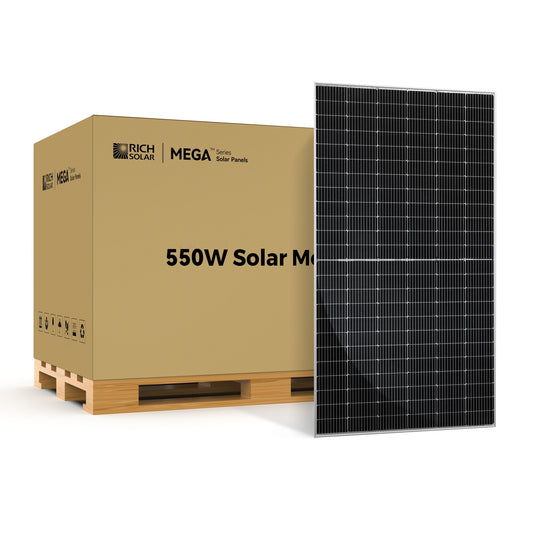Collection: Solar Panel
The Complete Guide to Solar Panels: Save Energy, Save Money, and Power a Sustainable Future
What Are Solar Panels and How Do They Work?
-
Simple explanation of photovoltaic (PV) technology
-
Difference between solar thermal and solar PV systems
-
Components of a solar panel system (inverter, battery, grid connection)
-
How solar panels convert sunlight into usable electricity
The Benefits of Installing Solar Panels
-
Environmental advantages: reducing carbon footprint
-
Economic savings: lowering monthly energy bills
-
Increased property value and potential tax incentives
-
Energy independence and long-term sustainability
Choosing the Right Solar Panels for Your Home or Business
-
Key factors: efficiency, durability, and warranty
-
Top types of solar panels (monocrystalline, polycrystalline, thin-film)
-
Roof orientation, shading, and system size considerations
-
Working with certified installers for optimal results
Maintenance and Long-Term Performance
-
How to clean and maintain solar panels safely
-
Common issues and how to troubleshoot them
-
Monitoring energy output for maximum efficiency
-
Expected lifespan and recycling options for old panels
Frequently Asked Questions (FAQ)
1. How much does it cost to install solar panels in 2025?
Installation costs vary depending on system size and region, typically ranging from $10,000–$25,000 before incentives.
2. How long do solar panels last?
Most solar panels last 25–30 years, with warranties covering at least 80% output performance after 25 years.
3. Do solar panels work on cloudy or rainy days?
Yes, though at reduced efficiency — panels can still generate 10–25% of their usual output in low-light conditions.
4. Can I install solar panels myself?
DIY is possible but not recommended. Certified installers ensure safety, efficiency, and eligibility for government incentives.
5. What government incentives are available for solar panels in 2025?
In many regions, homeowners can benefit from federal tax credits, local rebates, or net-metering programs that reduce energy costs.




















